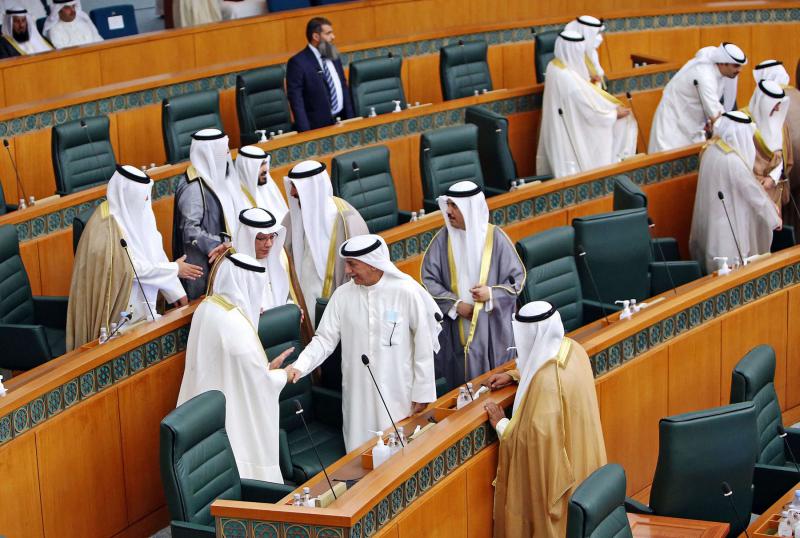Kuwait’s Education Minister Takes Bold Steps Against Corruption
KUWAIT CITY In a decisive move to protect the integrity of Kuwait’s educational institutions, Minister of Education Dr. Sayed Jalal Al-Tabtabaei has referred nine new corruption cases to the Public Prosecution. This development marks another step forward in the government’s growing efforts to fight misconduct and restore public trust in the education system.
According to official sources, the cases involve high-level violations, including embezzlement of public funds, abuse of authority, and manipulation of administrative processes. Some individuals are also accused of providing false data and documents, which has raised red flags regarding the overall transparency and efficiency of internal procedures within the ministry.
A Zero-Tolerance Approach to Corruption
The Ministry of Education, under Al-Tabtabaei’s leadership, is demonstrating a clear zero-tolerance policy toward corruption. The nine new cases follow an ongoing series of investigations into unethical practices that have allegedly plagued parts of the ministry for years.
Dr. Al-Tabtabaei said the referrals reflect a broader strategy aimed at cleansing the ministry from within. “We cannot allow corruption to take root in our educational institutions,” he stated. “Reform begins with a clean administrative system, and we are committed to holding every individual accountable for their actions.”
Inspection and Auditing Office Plays a Key Role
One of the main tools used to uncover the recent cases has been the ministry’s Inspection and Auditing Office. This unit, which was recently revitalized, has been tasked with monitoring financial transactions, reviewing internal reports, and ensuring compliance with regulations across all departments and institutions falling under the ministry’s umbrella.
Officials within the auditing team said they detected irregularities through routine checks, internal tips, and data inconsistencies. These findings were then thoroughly reviewed before being sent to the Public Prosecution for legal action.

By empowering oversight departments and improving internal reporting systems, the ministry is aiming to create an environment where ethical standards are not just encouraged but enforced at every level.
Longstanding Challenges in the Education Sector
This is not the first time corruption has made headlines in Kuwait’s education system. In recent years, multiple cases involving fake degrees, certificate forgery, and cheating scandals during national exams have surfaced.
In July 2024, Minister Al-Tabtabaei had referred another batch of forged academic certificates to prosecutors. These certificates, some of which were reportedly obtained from unrecognized universities abroad, were used by individuals attempting to secure government jobs or promotions illegally.
The discovery triggered widespread reforms in how academic credentials are verified. The ministry introduced new digital verification systems and established stricter evaluation processes to detect and reject fraudulent documents.
Wider Government Support for Anti-Corruption Drive
The latest measures are part of Kuwait’s national push to fight corruption across all sectors, not just education. The government has prioritized transparency as a key pillar of its reform agenda and is working closely with anti-corruption bodies and international watchdogs to improve governance.
The Public Prosecution Office has praised the ministry’s proactive stance and pledged to thoroughly investigate the referred cases. If charges are proven, those involved could face heavy fines, job dismissal, or imprisonment depending on the severity of the offense.
The Minister also affirmed that investigations are ongoing and more cases could emerge in the coming months. “No one is above the law. These actions are just the beginning,” Al-Tabtabaei noted.
Strong Public Reaction and Social Media Response
The public response has been overwhelmingly supportive. On social media, many Kuwaiti citizens praised the minister for his bold actions, calling them a much-needed step to clean up the system. Teachers and students alike expressed hope that the new anti-corruption measures would help improve educational quality and fairness.
Some users emphasized the need to extend investigations beyond the central offices to schools and university departments where favoritism and administrative corruption have also been reported in the past.
“There’s a real sense that things are changing,” said Sara Al-Dabbous, a high school teacher in Hawalli. “We’ve seen too many instances where people got away with breaking the rules. Now, we finally see action being taken.”
The Road Ahead: Reforms and Accountability
Looking forward, the Ministry of Education plans to continue its internal reviews while introducing reforms that will prevent corruption before it starts. These include new training programs for employees on ethics and accountability, updates to procurement and financial policies, and an anonymous reporting channel for whistleblowers.
Dr. Al-Tabtabaei also stressed the importance of transparency in hiring and promotions, vowing to eliminate favoritism and ensure that merit-based criteria guide all employment decisions within the ministry.
Educational experts say these efforts, while encouraging, need to be consistent and backed by long-term policies. They urge the government to invest in digitalization, staff training, and performance evaluations as tools to maintain clean governance.
Conclusion
The referral of nine corruption cases to the Public Prosecution is a powerful message from the Ministry of Education: corruption will no longer be tolerated, and reform is underway. With the support of oversight agencies, the public, and government partners, Kuwait is working toward building a more honest, efficient, and trustworthy educational system.
If these actions are maintained and strengthened, they could serve as a model for other ministries facing similar issues.
For more Information click here



